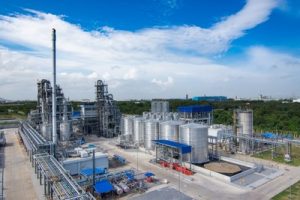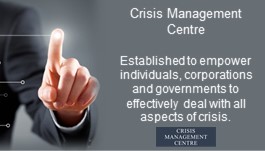Based on the Thailand Board of Investment (BOI), Thailand Saw US$1.7 billion “BCG”, or Green, Investment Applications in Jan-Sep 2020
In the first nine months of 2020, local and international companies applied to invest as much as US$1.7 billion in Thailand in more than 300 projects in the sectors listed as “BCG”, or Bio-Circular-Green economic activities focused on environmental protection and sustainability, according to data collected by the Thailand Board of Investment (BOI).

This lifted the total value of BCG applications since the start of 2018 to US$6.7 billion, reinforcing Thailand’s position as a Bio-Circular-Green hotspot, the BOI said.
The BCG model, as defined by the Thai Government, encompasses industries that allow inclusive, sustainable growth while reducing waste, pollution and dependence on finite resources. Thailand is a major agricultural producer, tourism destination and medical hub and its BCG sector comprises many of the country’s important industries: agriculture and food; bioenergy, biomaterials and biochemicals; medical and wellness; and tourism and the creative economy.
Currently, those sectors have a combined economic value of US$113 billion, according to Thailand’s Ministry of Higher Education, Science, Research and Innovation. By 2025, the government aims to increase that value by 30 percent to US$147 billion, making BCG industries equivalent to 25 percent of the national gross domestic product, the ministry says.
The slew of tax breaks offered to companies developing green and sustainable industries have lured investors ranging from large multinationals to local and foreign startups. Non-tax incentives include renewable smart visas allowing international talent and investors in key sectors to work and stay in Thailand for up to four years. The BOI also supports companies by helping establish industrial linkage, sourcing of local suppliers and business matching.
Among global companies betting on the country’s green potential are French energy major Total and Dutch biochemical giant Corbion, which in 2017 teamed up to build a factory in Thailand that uses responsibly sourced, locally-grown cane sugar to manufacture polylactic acid, or PLA, a 100 percent renewable and biodegradable bioplastic that can be used to replace polystyrene and other oil-based polymers while having a 75 percent smaller carbon footprint.
The joint venture, Total Corbion PLA, has built its plant at Rayong in Thailand’s Eastern Economic Corridor (EEC) adjacent to a longer-established factory operated by Corbion that makes lactic acid, on which PLA is based. Between them, the two partners have invested some US$250 million in Rayong and within two years will have increased that investment to US$500 million as the PLA plant increases production from 75,000 to 100,000 tonnes annually to address the growing demand, company executives say.
“We have the best technology in the world for PLA here in Thailand,” says Sander van der Linden, Corbion’s country manager and site director at Rayong. “We get great support from the Thai government, which is committed to developing the bio-based economy and agriculture sector and for that reason it is a very good environment for us to be in.”
Simon Goldney, Total Corbion’s plant director, points to numerous reasons why Total and Corbion chose to invest in Thailand. One obvious advantage is that Thailand is the world’s second biggest supplier of sugar, the raw material for PLA. Other attractions include good port infrastructure, corporate income tax breaks and import duty exemptions, and the quality of the workforce.
Japanese biotech startup Spiber Inc also had the confidence to choose Thailand’s EEC for its first factory outside Japan. The US$100 million Thailand factory, due to begin production in 2021, will be the world’s largest structural protein fermentation facility, producing 700 tonnes a year. It will use sugar sourced in Thailand and will serve as a base for research and development.
Spiber has created an international buzz by pioneering and becoming the global market leader in environmentally friendly synthetic spider silk, replicating spider silk DNA using brewed protein created from micro-organisms fed with sugar. The material is stronger than steel, lighter than aluminum and more flexible than carbon fiber and can be used in the fashion industry as a fiber, or in construction, the auto industry and the manufacture of medical devices.
Spiber Managing Director Morita Keisuke says his company originally considered other possible locations in Asia and the Americas. However, it was won over to Thailand not only by the availability of sugar, but also the incentives, reliable infrastructure, good access to, and relationship with, Japan and strong supply chains in industries of interest to Spiber, such as clothes and automotive, and again the Thai workforce.
“We can find people with high skills and good personalities who empathize with our vision,” Keisuke said in an interview.
Another crucial activity, which while not included in BCG, is equally important in protecting the environment, is the development of electric vehicles.
In that sector, a Thai company that stands out is Energy Absolute Pcl, Thailand’s number two publicly-listed electricity supplier with a market value of US$5.6 billion. The company which started in the renewable energy sector, a part of BCG, with investments in wind and solar farms, is now expanding into the development of electric vehicles and their related ecosystem.
The company has become a key figure in Thailand’s efforts to steer its highly successful automobile manufacturing industry — the world’s 11th largest — beyond the internal combustion engine era into the design and production of electric vehicles.
Energy Absolute has invested in the production of five-seat electric cars, electric buses, and electric boats, as well as the lithium-ion batteries and charging stations that will help the EV market to expand. The first phase of Energy Absolute’s US$100 million lithium-ion battery factory — the first in Southeast Asia — is nearing completion, and 500 EV charging stations have sprung up in readiness.
To further boost the EV investment trend, the BOI announced in November 2020 a new set of promotion measures. The package replaced and expanded the EV promotion policy first announced by the BOI in 2017, that led to investment in both hybrid and fully electric vehicles by several global car makers and startups.
“I hope my success will be a catalyst and bring another wave of investment,” Energy Absolute founder and Chief Executive Officer Somphote Ahunai said in an interview. “The BOI has a very transparent and fair process for everyone and supports foreign investors. We welcome competition.”
SOURCE Thailand Board of Investment (BOI)


